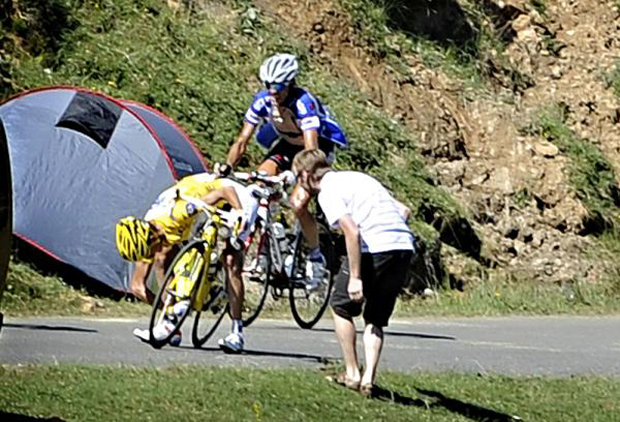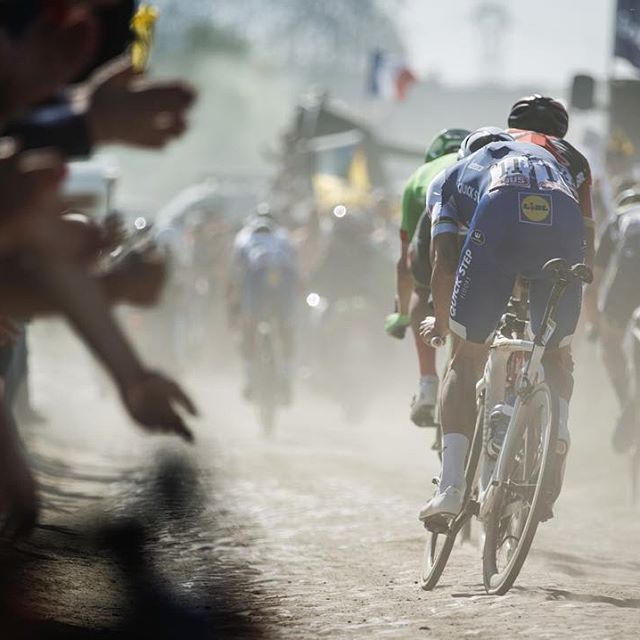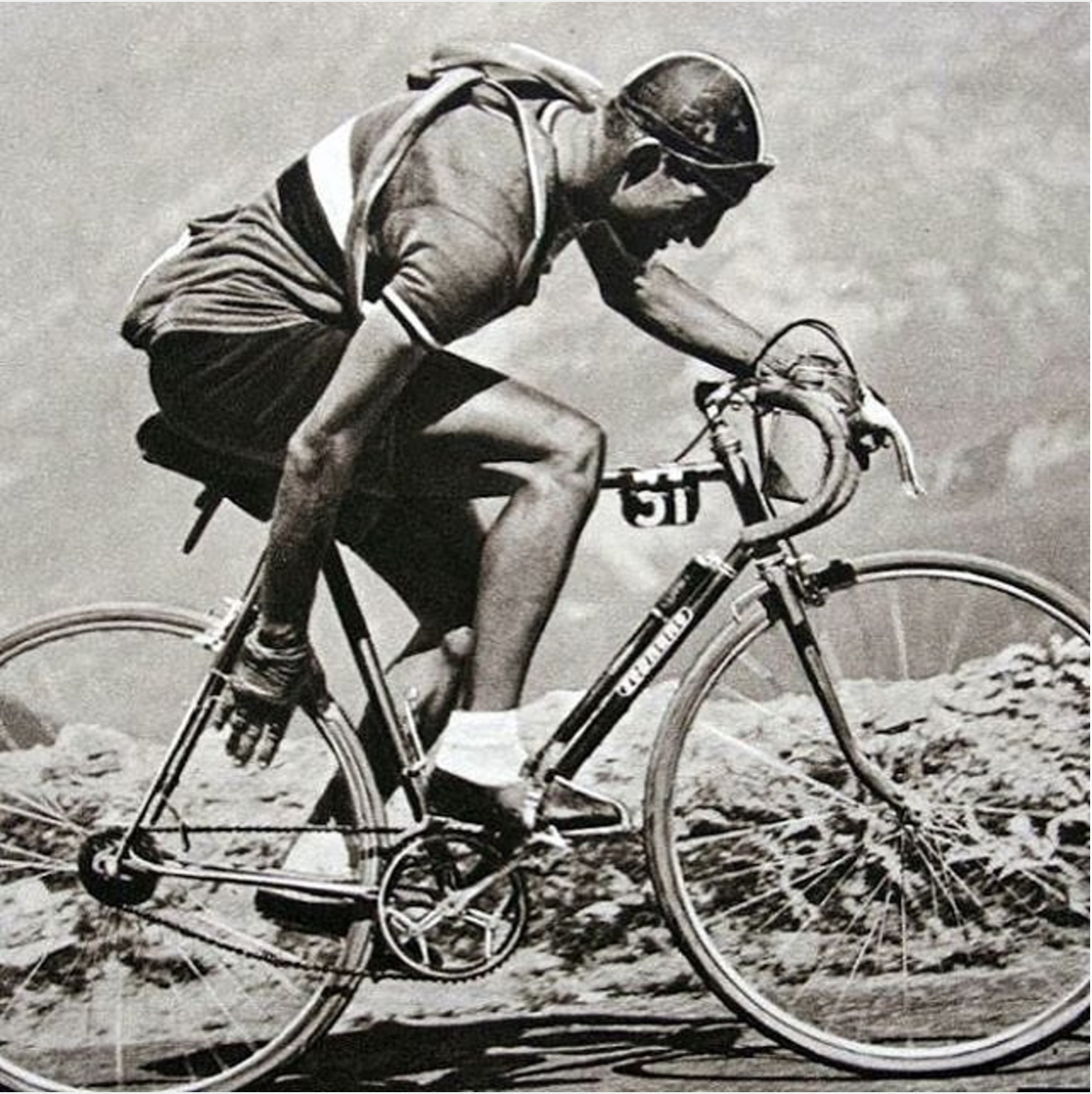We Are Not Animals

Of all people, a Velominatus knows that our sport is a civilized one; it is steeped in tradition and etiquette and rife with unwritten rules. High on the list of unwritten rules are those that outline acceptable behavior when various hardships befall the leader of a Grand Tour. One of the reasons such rules exist is due to the brutally difficult nature of our sport; in the context of stage races where crashes and mechanical incidents are a part of daily life and can have a major impact on the competitive landscape, such conventions and agreements form a foundation in the quest to find the winner of the events through athletic, tactical, and strategic superiority while minimizing the impact that misfortune may have on the final outcome. The Golden Rule in this case is that riders are never to attack the race leader when they suffer a crash or mechanical incident.
At the Giro d’Italia, on Stage 7 over the Strada Bianchi, the race leader Vincenzo Nibali crashed and was left to struggle behind. The question was raised then, why did the leaders not wait for Nibali, the fallen Maglia Rosa, to rejoin before continuing to race? One reason might be that Nibali wasn’t considered a legitimate threat to take the final win. Another reason was that the race was on in full force and as such there were too many riders already attacking at the moment of the crash. Justified or not, the sportsmanlike thing to do would be to wait. They didn’t, and in the end it had little impact on the result (the winner, Ivan Basso, was also held up in the crash), but a small bit of our accepted etiquette died with the decision to continue on.
Today at the Tour de France, we saw a similar situation where the Brother Grimpeur the Younger distanced rival Alberto Contador before a mechanical eventually saw him lose his Yellow Jersey. Schleck had to stop to right his dropped chain, and while he did so, Contodor came by him and pushed his advantage home, all the way to the finish. In the end, Schleck lies a few seconds behind Bertie, and in truth the 30 second lead he had before the incident was likely not enough to win the Tour. Indeed, little has changed in the reality we face in the coming days: Andy must attack Contador if he is to win this year’s Tour.
One thing that has changed, however, is that Contador has proven something I have long suspected: he is a rider whose ambition to win is greater than his sense of sportsmanship. Marko has written in these archives about the A.C. Enigma and his ambivalence towards this rider. Bertie has given us little reason to love him, aside from his blistering accelerations up the steepest grades in the mountains. He has also given us little reason to hate him, for we know little about him. For me, the greatest riders are those who perhaps do not win often, but they lose with class and dignity, and they fight. Riders who display dignity and respect for the sport and fellow athletes in the midst of dishing out huge helpings of Rule #5 is what endears a rider to this particular heart. Jan Ullrich is the prime example of this; his sportsmanship on the slopes of Luz Ardiden in the face of an opportunity to win the 2003 Tour is unmatched. Even after spending year after year being beaten by Armstrong into second place; he still had the overriding sense of sportsmanship to wait and resist pushing home the advantage when Armstrong crashed.
In our sport, a champion is one who holds the unwritten rules of conduct in higher regard than a trophy. These are the athletes who understand that the very manner in which they set about achieving their results will be woven into the fabric of their career and weigh more heavily than the golden trophies of their victories.
At the end of the day, little has been decided in the outcome of the Tour. The one thing that has been determined is that Alberto Contodor is not a true champion, for he would rather win another Tour de France than show his fellow colleagues (not to mention the fans of this sport) the opportunity to discover who is the strongest through head-to-head competition. Alberto Contodor has shown his true colors as a great rider for whom winning is more important than sportsmanship.
Tomorrow will dawn with a renewed opportunity for Andy Schleck to also show his true colors. Will he protect his second place and race conservatively into Paris, or will he rise up to fight and try to win the Tour despite today’s setback? I have a feeling that we are about to be treated to the latter. I certainly hope so.
Alberto Contador did not need to wait today. But he should have, for ours is a civilized sport, and we, fellow cyclists, are not animals.

